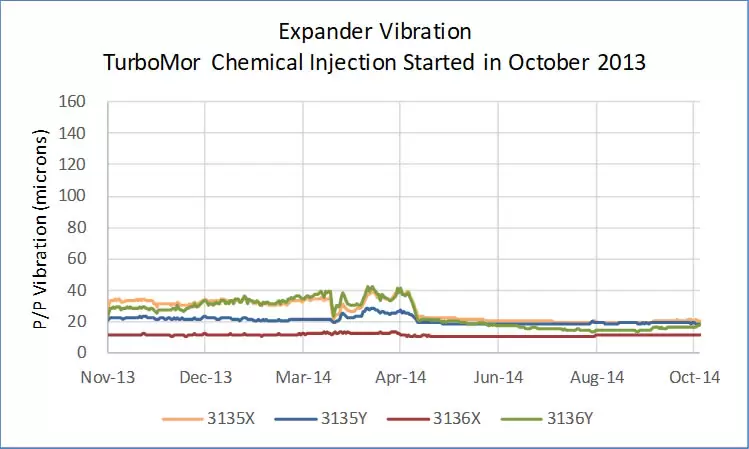Turbo-Mor
Eliminate deposits on Expander blades via online chemical cleaning.
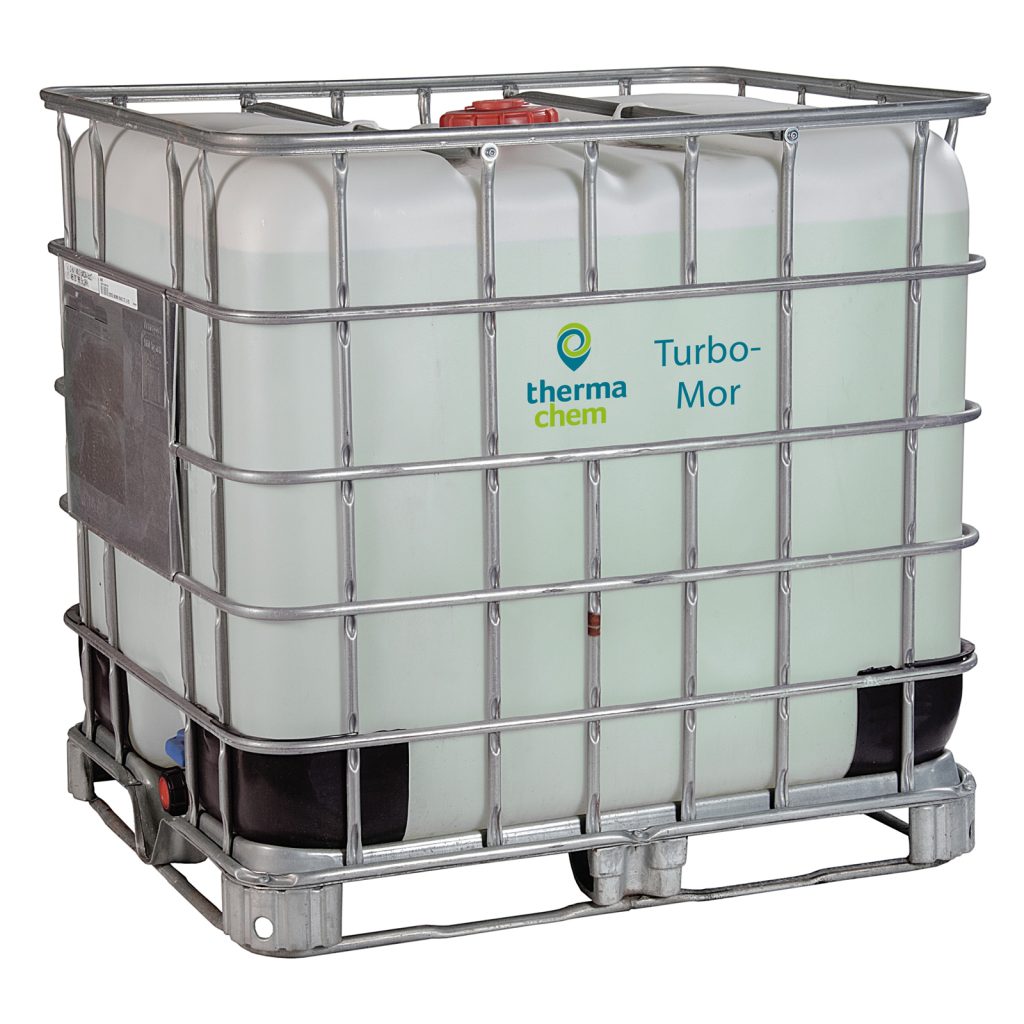
Turbo-Mor
A unique chemical solution created specifcially to target rotating equipment including Gas Turbines and Expanders within FCC units.
Therma-Chem’s Turbo-Mor is applied online to prevent corrosion of blades and other components by neutralising corrosive substances such as sulphur and vanadium.

FCC Expander Deposition
Catalyst deposition on expander flow path components can be a major concern for FCC operations. The deposition can occur on both rotating and stationary components and can lead to various issues such as:
– Severe power degradation
– Increased vibration
– Rotor blade rubs and major damage
– Unplanned unit trips
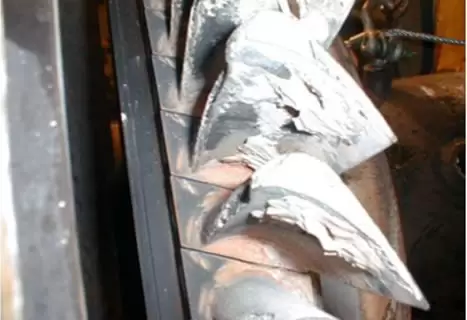
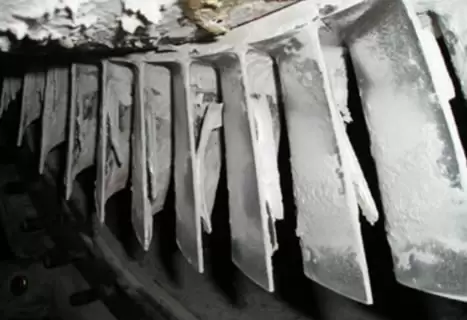

Examples of deposition on Expander blades.
Current Deposition Solutions
Walnut hulling or abrasive cleaning is utilized by many operators in an attempt to slow the rate of deposition. The success of these attempts varies greatly.
Once the deposition reaches the point that it is limiting unit operation or causing a rotor blade rub, a thermal cycling of the expander is required. The thermal cycling causes interruption of normal operations and can lead to problems with high temperature flue gas systems if not performed correctly.
How Turbo-Mor Works
Therma-Chem Turbo-Mor offers a better solution for FCC expander catalyst deposition fouling. Injection of the chemical is conducted online, upstream of the expander, during normal operation. Turbo-Mor will then:
– Penetrate, loosen and disintegrate the catalyst deposit;
– Protect surfaces from corrosion; and
– Prevent the new build-up of deposits.
Turbo-Mor is fully compatible with all equipment in the FCCU process and, in addition to the expander, the downstream equipment performance can be improved as well. Turbo-Mor has been utilized in expanders since 1999.
The graphs above show the vibration levels on on an expander before and after Therma-Chem treatment. Application of Therma-Chem Turbo-Mor successfully eliminated all high vibration trips in a 12-month period when in the previous year the Expander tripped on average every 6 weeks.
Before Therma-Chem
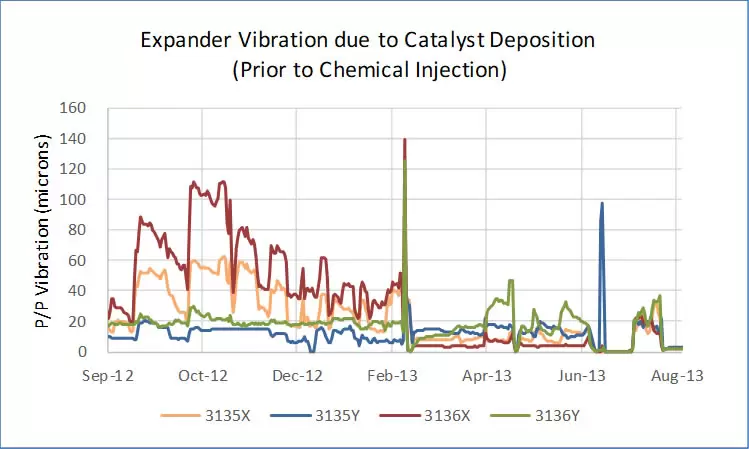
After Therma-Chem
